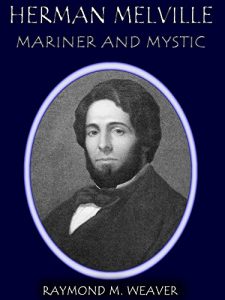“If ever, my dear Hawthorne,” wrote Melville in the summer of 1851, “we shall sit down in Paradise in some little shady corner by ourselves; and if we shall by any means be able to smuggle a basket of champagne there (I won’t believe in a Temperance Heaven); and if we shall then cross our celestial legs in the celestial grass that is forever tropical, and strike our glasses and our heads together till both ring musically in concert: then, O my dear fellow mortal, how shall we pleasantly discourse of all the things manifold which now so much distress us.” This serene and laughing desolation—a mood which in Melville alternated with a deepening and less tranquil despair—is a spectacle to inspire with sardonic optimism those who gloat over the vanity of human wishes. For though at that time Melville was only thirty-two years old, he had crowded into that brief space of life a scope of experience to rival Ulysses’, and a literary achievement of a magnitude and variety to merit all but the highest fame. Still did he luxuriate in tribulation. Well-born, and nurtured in good manners and a cosmopolitan tradition, he was, like George Borrow, and Sir Richard Burton, a gentleman adventurer in the barbarous outposts of human experience.
This site is safe
You are at a security, SSL-enabled, site. All our eBooks sources are constantly verified.






